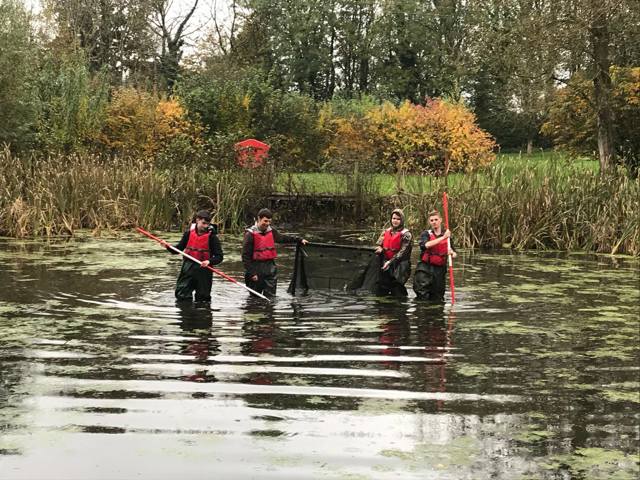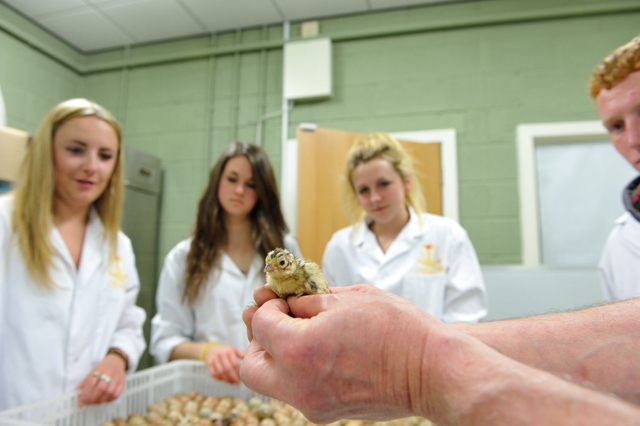
FEATURE: Taking care of the great outdoors
Published: Tuesday 16 January 2024One of the largest growth sectors in the UK is in the field of ecology and countryside management.

The management of land for the conservation of flora and fauna, general recreation, environmental education and urban regeneration requires a blend of skills. These include an understanding of ecological principles, a sound knowledge of management and the practical ability to carry out conservation techniques – from river catchment systems to rural and coastal habitats.
Many job opportunities exist within the conservation, gamekeeping and commercial sectors. At Myerscough College there's a range of study programmes available, leading to a range of careers in the industry.
After gaining their qualification, many of our students go into ecological consultancy. It's a massive growth industry at the moment, as there are so many developments and house building projects going on. All these sites have to be surveyed, and if any issues are found, ecologists are the ones who have to come with the plans with how to address them.

It's all part of the modern planning system and what many ecologists do after qualifying these days. Larger companies pay very good salaries for qualified ecologists to work on projects. As investment in the UK grows, demand for such people will increase.
A number of large scale development projects pass through lots of natural habitats, ancient woodlands and sites of special interest, and they all need to be overseen by trained ecologists. It's the same with other schemes, such as solar energy and windfarms. The sector is seeing massive growth.
Countryside management is another rapidly growing sector, as well as being a vital part of maintaining and preserving the UK's green spaces.
The industry is evolving to keep up with the changing needs of the sector. Habitat, conservation, biodiversity and gamekeeping are all important areas.
Gamekeeping is still a very popular part and has a huge following. It can divide opinion, but it remains a very important component of the countryside and the protection of the habitat of birds and endangered species. The sector sometimes comes in for some criticism, depending on an individual’s point of view, but a tremendous amount of vital work is done.
There are lots of very worthwhile careers in countryside. Gamekeeping itself is seasonal, often with long hours, but it's a way of life for people with a keen interest in the great outdoors. Jobs are attractive, and often come with benefits such as accommodation - often a nice cottage in a rural setting - as well as a vehicle and everything you need to do the job.

Other roles available from studying such courses include things like fisheries management and pest control. These are niche industries with plenty of opportunities.
There are currently around 70,000 professional gamekeepers in the sector, with thousands leaving or retiring every year, but only hundreds of new ones entering the industry. There will always be a job for a qualified gamekeeper.
It's not too late to enrol for countryside study programmes starting in September 2024.
For more details, CLICK HERE
